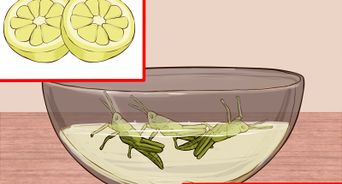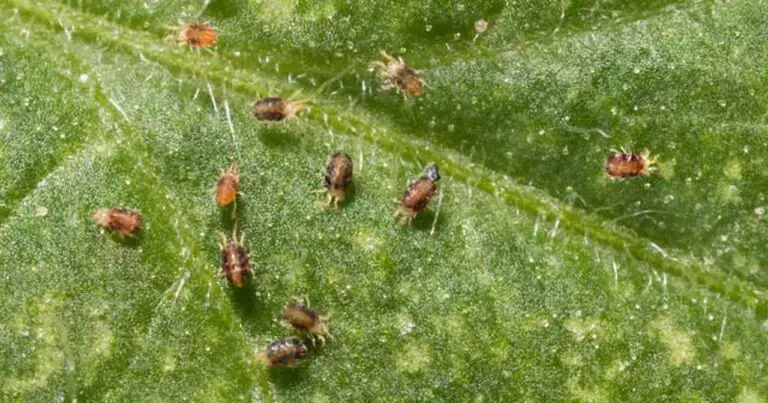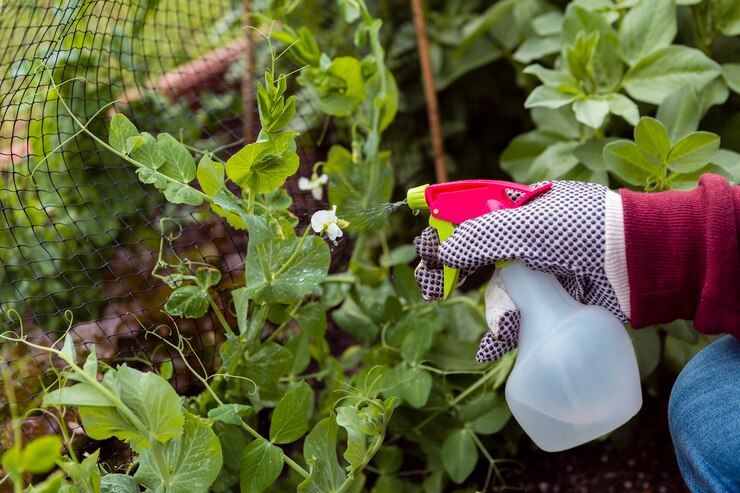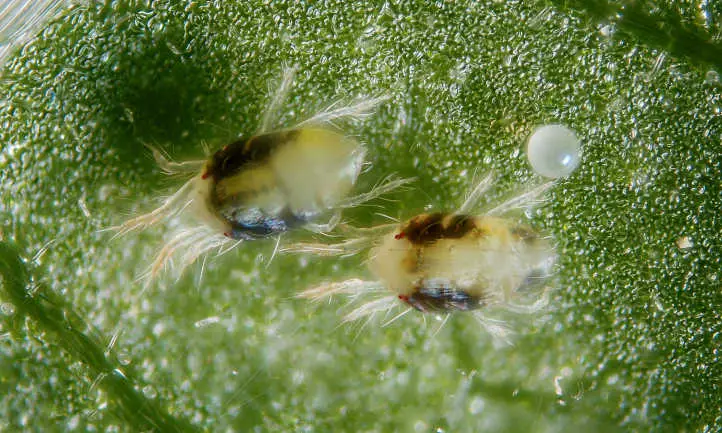How to Get Rid of Grasshoppers: Natural Grasshopper Control
Table of Contents
Utilizing Biological Controls: Introducing Microbes and Nematodes to Combat Grasshopper Infestations
Grasshopper infestations can wreak havoc on gardens and crops, causing significant damage and loss. However, utilizing biological controls such as microbes and nematodes can be an effective and sustainable solution to combat these pests.
Microbes, specifically bacteria and fungi, have been found to have substantial potential in managing grasshopper populations. These microbes can be applied to the soil or sprayed directly onto the plants, where they work by infecting and killing the grasshoppers. In some cases, they can also disrupt the grasshoppers’ feeding patterns and prevent their reproduction. Furthermore, these microbes tend to have minimal impact on beneficial insects and the environment, making them a safe alternative to chemical pesticides.
Nematodes, microscopic roundworms, are another powerful biological control option for grasshopper infestations. Certain species of nematodes are parasitic to grasshoppers, meaning they can enter the pests’ bodies and kill them from the inside. These nematodes can be applied to the soil or sprayed onto the plants, providing an effective means of controlling grasshopper populations. Additionally, nematodes have a short life cycle and can reproduce rapidly, enabling them to persist in the soil and continue targeting grasshoppers for an extended period.
By utilizing microbes and nematodes as biological controls, gardeners and farmers can effectively manage grasshopper infestations while minimizing the use of harmful chemicals. However, it is important to note that these biological controls may not provide instant results and may require multiple applications for optimal effectiveness. Additionally, it is crucial to select the appropriate microbial strains and nematode species, as different grasshopper species may have varying susceptibilities.

The Power of Diatomaceous Earth: Using this Natural Substance to Kill Grasshoppers Safely
Diatomaceous earth is a natural substance that has proven to be highly effective in combating grasshopper infestations. With its abrasive texture and powerful desiccating properties, diatomaceous earth acts as a formidable weapon against these pesky insects. When applied to areas where grasshoppers frequent, such as gardens and lawns, this substance effectively kills them by causing dehydration and damage to their exoskeletons.
What makes diatomaceous earth particularly appealing is its safety for humans, pets, and the environment. Unlike chemical pesticides, diatomaceous earth poses no risk of contamination or harmful effects when used properly. This natural substance targets only the insects, leaving beneficial organisms and plants unharmed. Its non-toxic and eco-friendly nature makes it an ideal choice for gardeners who prioritize the well-being of their plants and the surrounding ecosystem.
To use diatomaceous earth, simply sprinkle a thin layer onto areas where grasshoppers are present or likely to pass through. Focus on hotspots such as perimeter fences, plant beds, and pathways. The sharp edges of the microscopic diatoms will pierce the grasshoppers’ bodies upon contact, causing them to lose essential moisture and eventually perish. It is important to reapply the diatomaceous earth after rainfall or heavy watering, as moisture diminishes its effectiveness. With regular application and proper maintenance, diatomaceous earth can be an invaluable tool in keeping grasshopper populations under control while ensuring a safe and healthy gardening environment.

Natural Repellents: Exploring Essential Oils and Organic Substances to Repel Grasshoppers
Covering your plants with a protective shield against grasshopper infestations is crucial to maintaining a thriving garden. Exploring natural repellents, such as essential oils and organic substances, can provide an effective and eco-friendly solution. These repellents work by leveraging the power of nature to deter grasshoppers from damaging your plants.
Essential oils, derived from various plants, have shown promising results in repelling grasshoppers. Certain oils, such as peppermint, rosemary, and thyme, contain compounds that grasshoppers find unpleasant, leading them to avoid treated areas. Diluting these essential oils with water and applying them as a spray can create a barrier around your plants, acting as a strong deterrent. Additionally, some organic substances, like neem oil and garlic, have been found to have repellent properties as well. Incorporating these natural ingredients into your gardening routine can help protect your plants from grasshopper damage.
Certainly! Here’s a table outlining Natural Repellents to Deter Grasshoppers using readily available ingredients:
| Repellent | Description |
|---|---|
| 1. Neem Oil Spray | Neem oil, extracted from neem tree seeds, disrupts grasshopper feeding and reproductive cycles. Mix 1-2 tablespoons of neem oil with a few drops of dish soap and a quart of warm water. Spray thoroughly on plant surfaces. |
| 2. Chilli Pepper Spray | Capsaicin in chilli peppers irritates insects. Combine 2-3 tablespoons of crushed red pepper flakes or fresh chilli peppers with a quart of water. Let it steep for 24 hours, strain, add liquid dish soap, and spray on plants. |
| 3. Vinegar Solution | Mix equal parts white vinegar and water. The acidic properties deter grasshoppers from feeding. Add liquid dish soap drops for better adherence to plant surfaces. |
| 4. Essential Oil Blend | Lavender, eucalyptus, citronella, and tea tree essential oils can work together to repel grasshoppers without harming them. |
| 5. Beer Trap | Place shallow containers filled with beer near plants. Grasshoppers are attracted to the scent and drown in the liquid. |
| 6. Molasses Trap | Similar to the beer trap, use molasses mixed with water to attract and trap grasshoppers. |
| 7. Salt Spray | Dissolve salt in water and spray on plants. Salt deters grasshoppers and other pests. |
| 8. Flour Dusting | Dust plants with flour. Grasshoppers ingest it while feeding, causing dehydration and hindering their growth. |
| 9. Herbal Tea Spray | Brew strong herbal teas (e.g., mint, basil, or tansy) and spray on plants. The strong scents repel grasshoppers. |
| 10. Pyrethrin-Based Spray | Use pyrethrin-based insecticides derived from chrysanthemum flowers. Follow label instructions for safe application. |
These environmentally friendly solutions can help protect your garden without resorting to harmful chemicals!
Proper Yard Maintenance: Essential Practices to
Proper yard maintenance is crucial in ensuring a healthy and vibrant garden. By implementing essential practices, you can create an environment that discourages grasshoppers from invading your plants. One important step in yard maintenance is to regularly mow the grass to keep it at an optimal height. This helps prevent grasshoppers from using tall grass as a breeding ground and reduces their access to nearby plants.
Another practice to consider is maintaining a clean and clutter-free garden. Removing debris, such as fallen leaves and branches, helps eliminate hiding places for grasshoppers and reduces the likelihood of infestations. Additionally, it is essential to keep the garden well-watered but avoid overwatering. Grasshoppers are attracted to moist areas, so ensuring proper drainage and avoiding standing water can discourage their presence. By implementing these important practices, you can significantly reduce the risk of grasshopper infestations and maintain a healthy garden ecosystem.
For more information watch the below video.
How can I effectively combat grasshopper infestations in my yard?
Utilizing biological controls such as introducing microbes and nematodes can be an effective method to combat grasshopper infestations in your yard.
What are microbes and nematodes and how do they help control grasshopper populations?
Microbes and nematodes are tiny organisms that can be introduced into your yard to help control grasshopper populations. They work by targeting and killing grasshoppers, reducing their numbers.
Is diatomaceous earth a safe and natural way to kill grasshoppers?
Yes, diatomaceous earth is a natural substance that can be used to safely kill grasshoppers. It works by dehydrating and damaging their exoskeleton, leading to their demise.
How should I use diatomaceous earth to effectively kill grasshoppers?
To effectively use diatomaceous earth, simply sprinkle it in areas where grasshoppers are present or likely to be found. Make sure to reapply after rain or heavy watering.
Are there any natural repellents that can help keep grasshoppers away from my yard?
Yes, essential oils and organic substances can serve as natural repellents to keep grasshoppers away from your yard. These can include oils such as peppermint, neem, or garlic.
How do essential oils and organic substances repel grasshoppers?
Essential oils and organic substances contain strong scents that grasshoppers find unpleasant, deterring them from entering or staying in your yard.
What are some essential oils or organic substances that I can use as grasshopper repellents?
Some essential oils and organic substances that can be used as grasshopper repellents include peppermint oil, neem oil, garlic spray, or a mixture of vinegar and water.
Besides using biological controls and natural repellents, are there any other essential practices for proper yard maintenance?
Yes, proper yard maintenance plays a crucial role in preventing and managing grasshopper infestations. This includes regular mowing, removing weeds, minimizing standing water, and maintaining healthy soil.
How does regular mowing help in preventing grasshopper infestations?
Regular mowing keeps the grass short and less attractive to grasshoppers. It removes their preferred habitat, making your yard less appealing for them to infest.
Why is it important to remove weeds for proper yard maintenance?
Weeds can serve as a food source and shelter for grasshoppers. By removing weeds, you eliminate potential resources that attract and sustain grasshopper populations.
How does minimizing standing water contribute to preventing grasshopper infestations?
Grasshoppers require moisture to survive and reproduce. By minimizing standing water in your yard, you reduce the availability of water sources for grasshoppers, discouraging their presence.
Why is maintaining healthy soil important in preventing grasshopper infestations?
Healthy soil promotes the growth of strong and resistant plants, making them less susceptible to grasshopper damage. A healthy yard is less likely to attract grasshoppers in the first place.

Nicole Burke is a dynamic writer at SouthElMonteHydroponics, fueled by her passion for horticulture and environmental sustainability. Armed with a degree in Environmental Science from a renowned institution, Nicole’s expertise lies in hydroponic gardening, organic farming, and biodiversity conservation. Her insatiable curiosity and love for nature drive her to explore innovative techniques in hydroponics, seeking to revolutionize the way we grow crops in urban environments. Nicole’s writing reflects her deep commitment to promoting eco-conscious practices and fostering a deeper connection between humans and the natural world. Through her engaging storytelling, she inspires others to embrace sustainable living and harness the power of hydroponics for a greener future.





